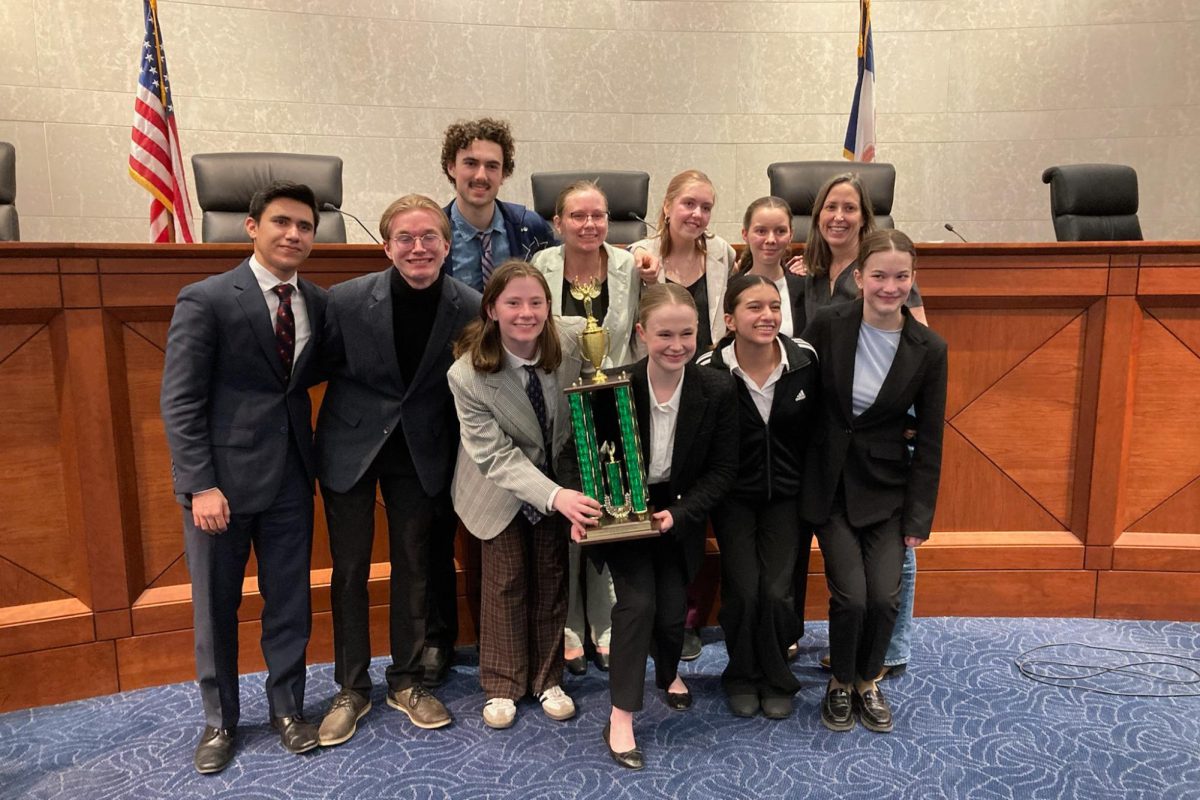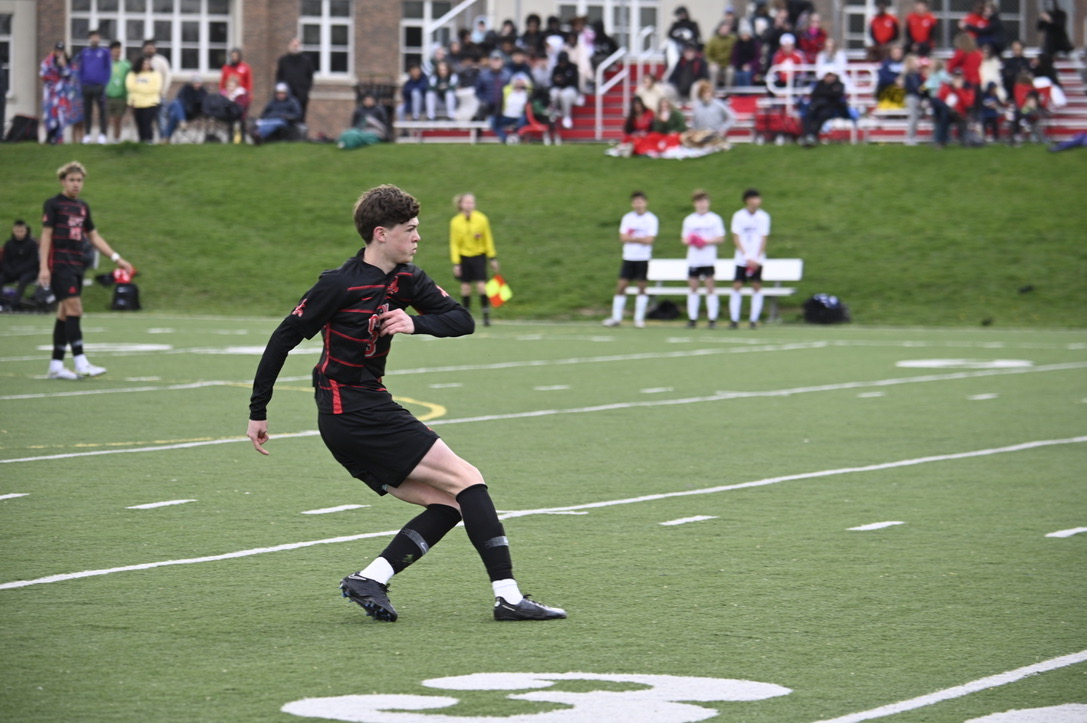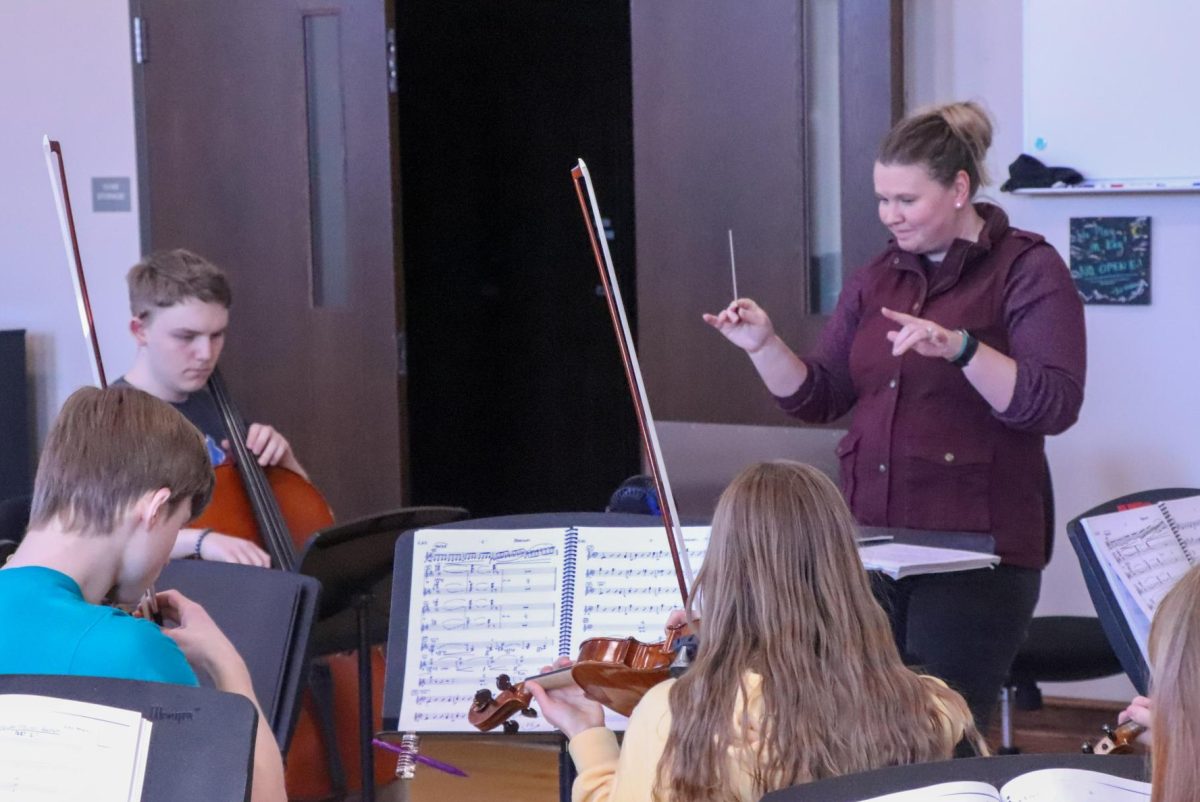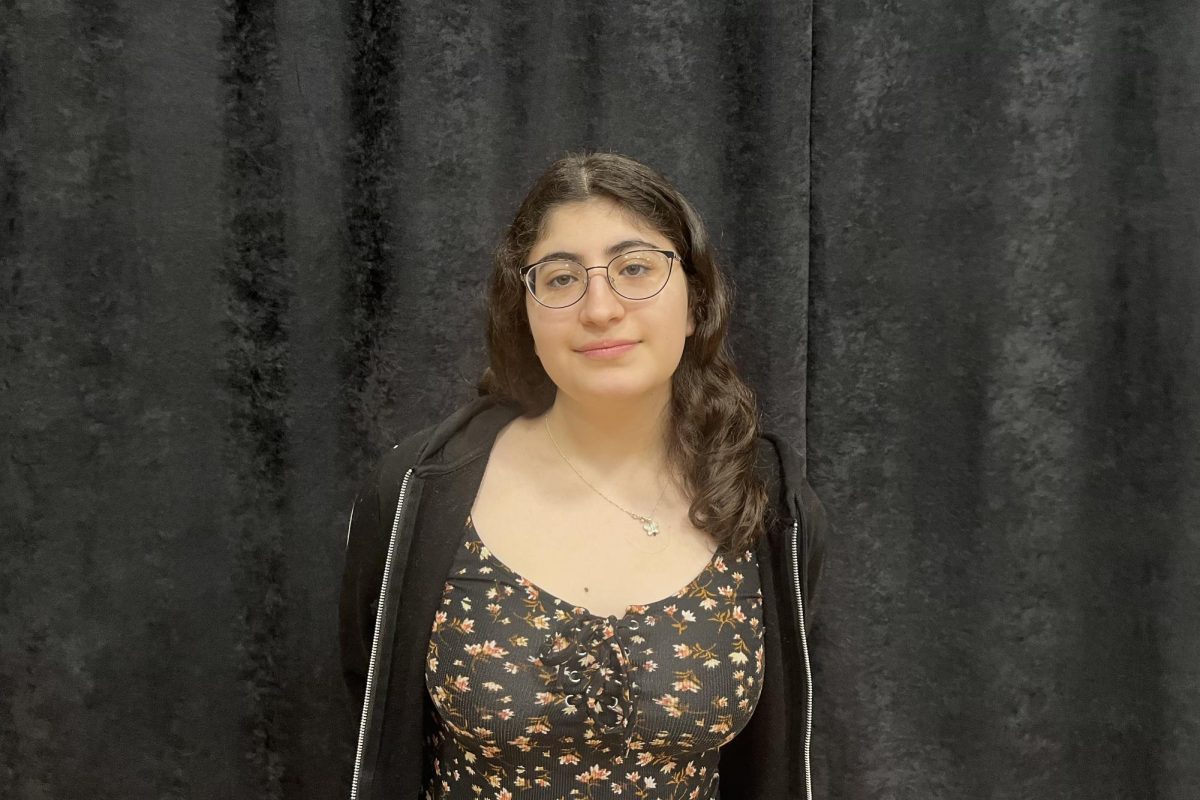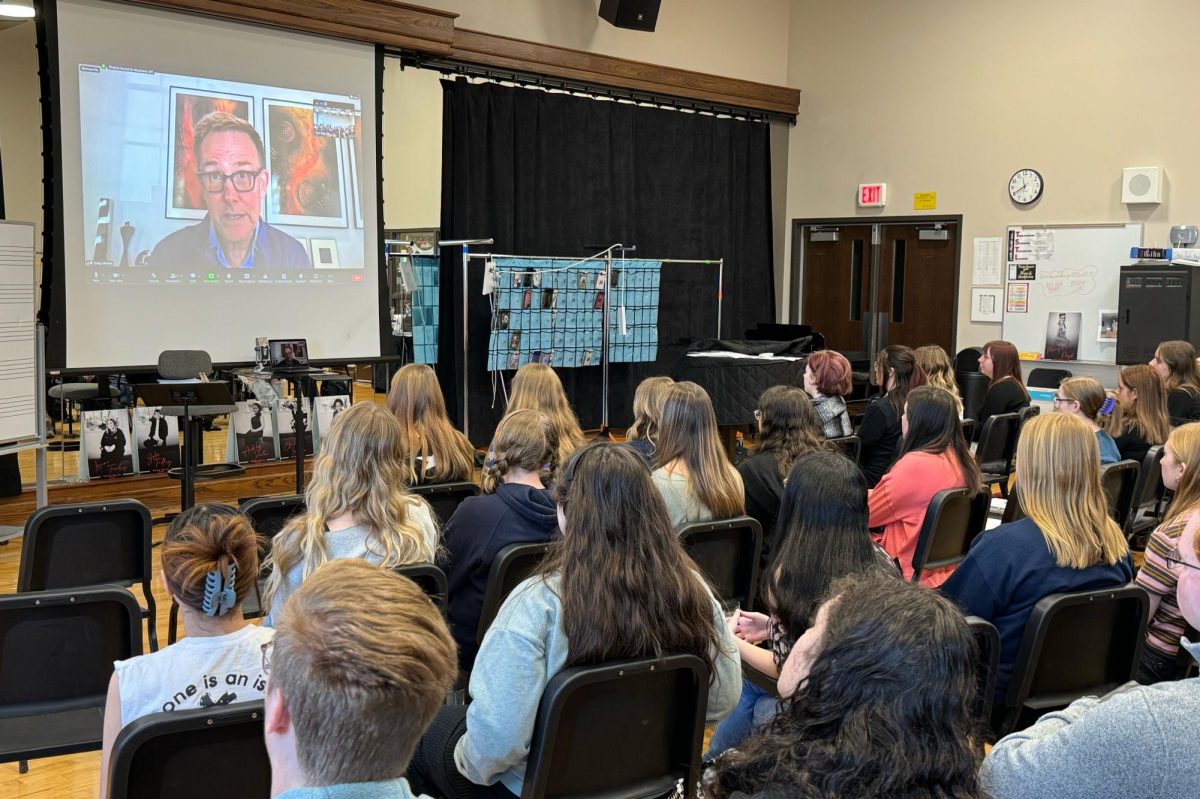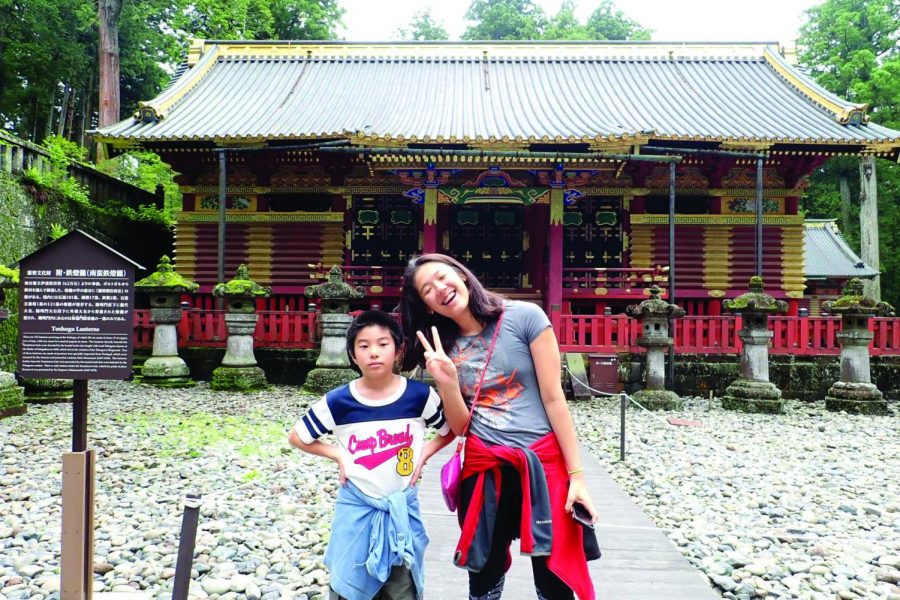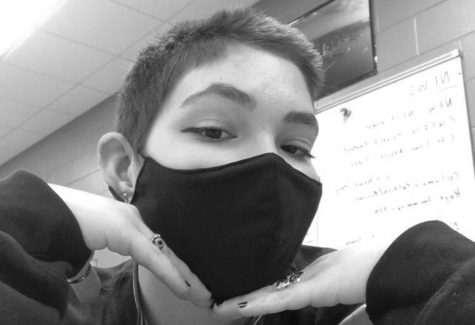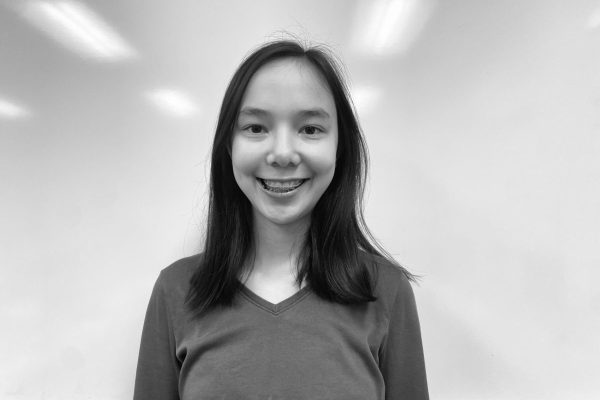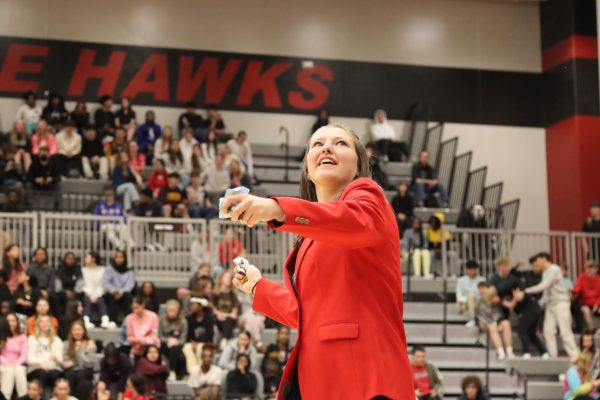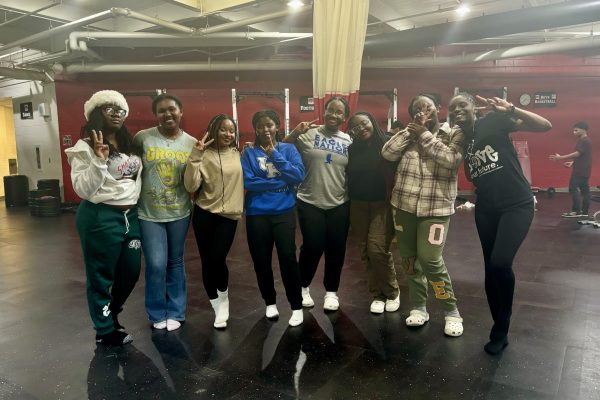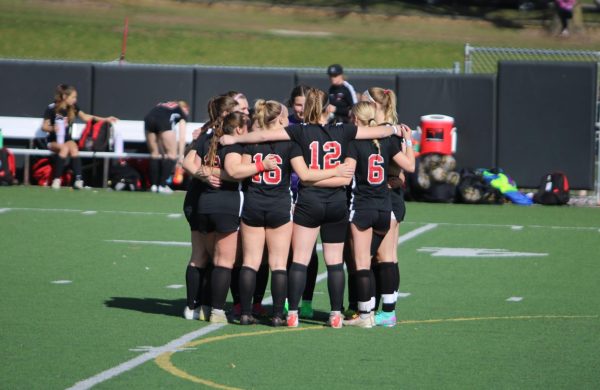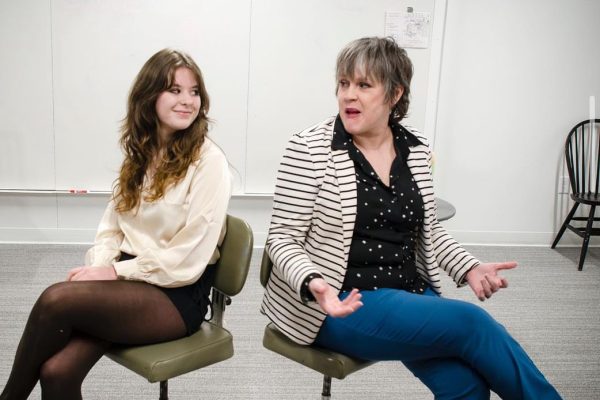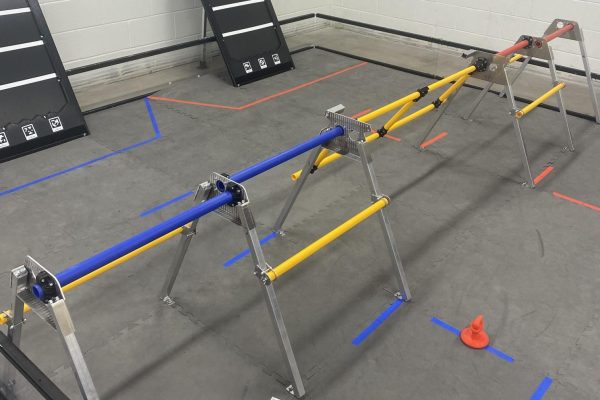Summer in Shiki
Rika Yahashiri ’21 and her younger cousin pose for a photo in Hong Kong
On the last day of classes, while other students were longing for school to get out, Rika Yahashiri ‘21 said goodbye to her friends and family, got on a plane, and flew to Japan for another two months of school.
“I thought [that] going to a foreign country by myself would be beneficial for me to teach myself different skills with independence and being by myself away from family,” Rika said.
Rika, whose mother is from Hong Kong and father is from Tokyo, grew up going to Japanese school every Sunday and speaking Japanese with her family. Her family had wanted her to go to Japan when she was younger, and then last year, when her grandparents were getting older, she and her parents decided she should go spend time with them.
“The main reason [Rika went to Japan] was because [Rika’s maternal grandma] had cancer, and my mom was getting old and weak, so we decided to send Rika to see them and stay with them,” Atsushi Yahashiri, Rika’s father, said.
The family decided to have Rika attend school while in Japan in order to stay busy over the summer. Atsushi was able to contact the state education department near where Rika would be staying in order to find a school that would work best for her.
“Initially, I looked at high school swim record in the state, and browsed which public schools have good swim teams,” Atsushi said. “Because Rika is a typical Iowa City girl who doesn’t appreciate public transportation, I needed to choose a school which was close and easy to commute to.”
Atsushi was able to give the state government the names of two schools that he thought would be best for Rika. The government was then able to get in touch with the school, which then accepted her.
“I exchanged emails several times with the [school’s] vice president after that,” Atsushi said. “Later we were surprised by [being] informed that the tuition was waved and the textbooks were mostly provided.”
This plan was finalized during late April of Rika’s sophomore year at City.
“[My dad] asked me and I was like, ‘Why not?’” Rika said.
Leaving on June 1st, Rika flew for 16 hours to Hong Kong where she was greeted by her uncle, aunt, two cousins, and maternal grandfather, none of whom she’d ever met before.
“It [was] kind of natural because my uncle was chill, which made everything better,” Rika said. “Me personally, I’m really good at meeting new people, so they felt like an extended family when I met them.” Me personally, I’m really good at meeting new people, so they felt like an extended family when I met them. — Rika Yahashiri
The biliteracy rate in Hong Kong is fairly high, with 46 percent of the population speaking English along with either Mandarin or Cantonese. Although Rika doesn’t speak Mandarin or Cantonese, she was able to communicate very easily with her family and the locals.
“There wasn’t really a language barrier. I just spoke English,” Rika said. “When I went around to eat food and shop, everyone knew English.”
After exploring Hong Kong and bonding with her younger cousins for two days, Rika headed to Shiki, Japan, a town southeast of Tokyo with roughly the same population as Iowa City, but packed into three square miles instead of 25. She was living with her aunt, cousin, great aunt and grandmother in Shiki. After arriving in Japan, Rika had two weeks to adjust to daily life there before starting school.
“Basically I got used to the place I was living in,” Rika said. “Jet lag–I had to get over that first–but then I had to learn how to ride the train, walk around town to get familiar with it so I wouldn’t get lost.”
One challenge was adjusting to speaking Japanese all the time because her family didn’t speak any English.
“It was kind of hard to get used to, because sometimes they wouldn’t understand what I was saying, so I had to change up the way I said things because I wasn’t used to speaking Japanese on a daily basis,” Rika said.
Rika started at Kawagoa Girls High School in the second week of June, a little while after the school had started their first trimester, and left on the last day of the trimester. She had to transition from learning in an English-speaking atmosphere to learning in an only Japanese-speaking atmosphere.
“When I eventually went to school, it was easier to transition because there were kids my age and they were all interested in me,” Rika said. “It made me gain confidence in speaking to them and talking to them and communicating and making friends with them.”
The school had a two-week rotating schedule with five 65-minute classes per day. Students stayed in the same classroom all day long and the teachers moved throughout the school to teach different classes. The teaching and learning style was different as well.
“It was more memory-based than complex understanding,” Rika said. “We had more memorizing of terms and important dates.”
Because the teachers moved classrooms instead of the students, the class would get very close from learning together, eating lunch together, and studying together for the entirety of the day.
“[In our class] everyone knew each other,” Rika said. “It was more like family than class here, where you have different people in each class every hour. You’d get to know each other more.”
One cultural difference was that the students would thank the teacher by bowing to them.
“Before class and after class, everyone would get up and bow to the teacher to thank them,” she said. “After you did that you would have to pay attention and you wouldn’t be able to eat or drink water, or do anything other than paying attention to the teacher during that time.”
There aren’t janitors for schools in Japan the same way that there are in America, so the students would have a 30- minute time period after lunch to clean up around the school. Everyone knew each other. If was more like a family than a class. You’d get to know each other more. — Rika Yahashiri
“Everyone would sweep the floor, scrub the floor, pull weeds, take out the trash, and things like that. [We] would have to do [that] in that time every day,” Rika said.
Her typical day would start around 6:30; she would then eat breakfast, take the train to school, and start school around 8:45. There was homeroom in the morning, then two classes, lunch, and three more classes. School got out around 3:45, when she would walk to the pool for swim practice.
“It was very different from swimming in America because the coaches would be there, [but] instead of one- on- one coaching, they will give you a whole workout and you’d have to do it by yourself, which is more individual and less flexible,” she said. “It was just like a rigid workout every day.”
Rika wore a uniform to school and had indoor shoes that she would change into when she got to school. Another difference was that they would have half a day of school every other Saturday. The school also set up a system so that Rika wouldn’t have to do all of the tests.
“Basically they set me up where I would be in class and participate, but they wouldn’t give me the homework books,” she said. “I would not take the tests. I took some in-class mini tests, but not any official tests.”
Her classes included English Communication, English Expression, World History, Language Arts, Japanese Classical Literature, Physics, Chemistry, Choir, and Physical Education.
“World History compared to [World History at] City High is more Eurocentric and a lot more [of] memorizing dates then memorizing key concepts,” Rika said. “Japanese Classical Literature was basically old texts from Japan.”
The band that she took part in was different than band at City. Because it was an all girls’ school, everyone played woodwind instruments.
“The music they chose [was] more like wind ensemble [songs], more classical than some of the pieces we play in band at City High,” Rika said.
Rika enjoyed being able to meet new people and learn about a new country through her friends. She keeps in touch with her friends from Japan and talks to them everyday.
“My favorite thing was how I made so many friends because everyone was super nice and I learned a lot from them about Japan,” she said. “I’m sure they learned a lot from me about America and it was really beneficial to talk to people that live in a foreign country.”
Rika says that she would recommend studying abroad to other people, as it is a good way to learn how to be independent and experience life in a different country.
“I’ve learned about how [Americans] view Japan, and how Japan views America is very interesting, because you don’t really know much about a country on until you go there and experience it,” she said.
Your donation will support the student journalists of Iowa City High School. For 2023, we are trying to update our video and photo studio, purchase new cameras and attend journalism conferences.




